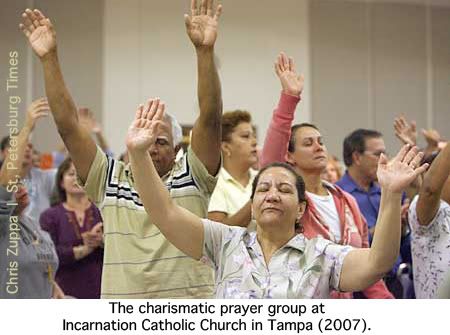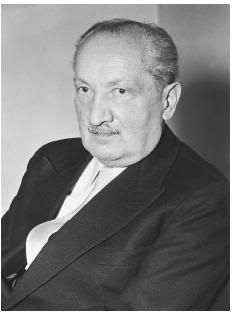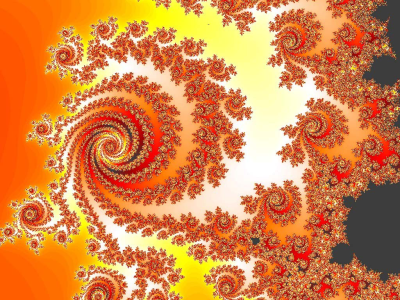
On
my boards right now some regular posters are having one of the best discussions I've ever seen. This is really what message boards should be about. It's Atheists vs. Christians, but no ranker, no hostility, everyone one acting friendly and engaging in discussion in good will.
Quntum Troll has returned after a long hiatus and he and Feeltmouse, while not expressing identical view, represent the atheists. The Theists are represented by Tiny Thinker, Wrodgazer and the new guy, M.D. Simposon.
sample, one post out of four pages:QuantumTroll wrote:Wow, this thread has careened away from me completely. Sorry to all y'all who have written interesting things lately, I'm going to respond to things in order, beginning with Tiny's reply to me.
tinythinker wrote:Yet again, you don't know enough to rigourously evaluate every scientific claim. Nor do you have the time or resources. Mostly you trust others to be honest, accurate experts. Knowing a little about everything is nice but it doesn't qualify one to really be able to seriously evaluate most (and I use that word to its fullest) of what is out there in anything other than a fairly superficial way. That is, as a non-specialist. I am not unfamiliar with excellent reading comprehension or the skill of seeing the larger picture, though I am probably a bit rustier at spotting iffy stats on first glance. I am at heart a systematist/integrator of different knowledge streams. I am not suggesting you can't predict things or see flaws from your perspective which others who are "too close to the data" or a particular model cannot see from theirs. But that puzzle picture and sense of fit, again, comes from faith in the people who gave us the pieces as well as those who put that picture together.
QTI don't understand your point.
Tiny:Thanks for your thoughtful reply. I will elaborate on my interests here. I saw that you had written, in the previous thread, "I accept scientific facts as things that are known to be true. If I believe something, and science suggests me to be wrong, then I change my mind (after evaluating the science, of course!)." I think this describes how many people in modern industrial democracies feel. Contrary to fleetmouse's misgivings, I don't think it is a poor position to take. However, as I said to him, anyone who works in science or cites scientific knowledge should be conscious of the nature of science, including its flaws and limits. In fact, this should be a concern for anyone who relies on science. Given what I recall (or think I recall) about your background, I thought it would be instructive and fruitful to engage you on the matter to see how aware you are of these boundaries and how you would react to being asked about them. I assume that those who don't work in science or who don't have much a background in it are probably less aware of these issues than those (like you) who are.
This matters to me because even someone who specializes in one area, such as structural geology, may have only had a fleeting biology course their freshman year in college. As a non-specialist, when our geologist regularly sees that someone has found "a gene" for this and "the gene" for that, he, like many laypeople, can easily get the notion that there really is "a" gene for every trait, and, not knowing how traits are defined or categorized, may imagine that there is "a gene" for being rude, or "a gene" for being religious or atheist (someone has actually tried this already!), or "a gene" for whatever. Now to be fair, one can correlate the activity of a gene with the presence of some structure or behavior and give it a shorthand like "a/the gene for". And some genes are pivotal switches for a pathway to allow or disallow the development of such traits. But the image that seems too often to be constructed in the mind of many people of how genetics works and what such discoveries do or don't mean is often a far cry from what geneticists and developmental biologists actually think is going on.
Such people may then go on to have ideas about what science does or does not claim and the implications of it all, yet may be way off base. Such misunderstandings can have serious consequences for public debates and for policy proposals. Those who least understand what science actually looks like up close, or how tenuous or open to interpretation some claims are (especially in fields where ideas and data sets have a high turnover rate), often seem to be those who are most dogmatic about their understanding of the science they are discussing. They, for example, might have a hard time truly appreciating or agreeing with what you meant when you wrote:
QT:Science is never about absolute certainty. All aspects of life involve trust in the people around you. I don't pretend to be able to *rigorously* evaluate *every* scientific claim, and I don't need to. All I need is to be able to efficiently internalize the relevant science when I consider an open question. I take the science as far as I can go, sometimes (rarely) to the limit of science, sometimes (more often) to the limit of my patience and interest, and sometimes to the limit of my abilities.
They would also struggle with something you wrote even earlier in our conversation (emphasis added):
QT:I think science is a valid form of knowledge... Thus far, I've discussed only science and scientific questions. Keeping the puzzle analogy, we can see science as an image of a game board, describing the rules and playing field for existence. Everything we do is done within the confines of this board, and everything that happens is a result of the rules defined by the board. What we don't get by examining the board is an answer to questions like "what should we do", "what do we want to do", "what is it like". Questions like "what can we do", which seem to be theoretically answerable by looking at the game board, can be so complex that we only get the vaguest of answers from that quarter. For these kinds of questions, we need something that isn't science.
Tiny:Not appreciating this kind of distinction leads down a slippery slope to the realm of dogmatic scientism, wherein science is presumed to always be giving the correct, accurate and complete view of the world, and where errors introduced by human flaws and biases (as I have been laying out for review) are ignored as aberrations or redefined as resulting from inadequate data. This kind of idolization of science often starts off very subtly and can be hard to detect in just a causal conversation about science. Therefore it can go unchecked or unchallenged and lead to some pretty poor thinking and some misguided conclusions. In my view this can hurt both the integrity and the image of science in the long run if it catches on among academics as well as laypeople. It can also give aid and comfort to the people fleetmouse was concerned about, who see their views as generally antagonistic to scientific ideas, by allowing them to attack the superficiality of such an idolized, unrealistic science. Conversely, they can take the idolized form as the exemplar to which science should aspire and then mock by comparison the more grounded, messy and non-linear examples of actual science. I've seen this done plenty of times in debates over creationism. I suspected you would be cognizant of the kinds of things I am concerned about as well as articulate in discussing them. I was correct (there's a first time for everything).
Additional interests in this conversation include the fact that I love to discuss topics like this, and I wanted to demonstrate that interesting and productive dialogues on topics like the nature of knowledge, the role of science, the importance of beliefs, etc, are in fact possible on this board between reasonable people of good will.
QuantumTroll wrote:Then I have as firm a basis in "what is known" as possible.
TinyAs a point of distinction rather than contention, I would say that I tend to agree with you except I would not limit what is possible only to that about which science is currently willing or able to speculate. I think it gives a pretty good idea of the contours of the game board, though.
QuantumTroll wrote:tinythinker wrote:QuantumTroll wrote:But what if a whole patch of the puzzle is wrong? What about paradigm shifts? Can I base a worldview on what is essentially an opinion that can change completely in a decade? Here, I like to bring up history of science, and the historical fact that science doesn't work the way it used to. It used to be that people believed one thing without sufficient cause, and then a scientific discovery overthrew the old paradigm. People believed Lamarckism not because they had evidence, but because they had no way of determining if it was a good theory. Ditto Hobbe's Plenism. If you examine the history of paradigm shifts, they've only occurred when ignorance is replaced with new data and a theory to explain it. We've never really overthrown a previous known, just a previously adored belief. And we're running out of those, quite frankly.
People believed Larmarckism because it fit their observations. It seemed consistent with how the world appeared to work. Darwin himself made strenuous appeals to ideas such as use/disuse even while he was introducing the idea of natural selection. He would later use it more and more as people poked holes in his early formulations of selection. I would be greatly amused to ask someone from 200 years in the future what they think of many of our paradigms. I suspect that if they were to use your conception of ignorance, knowns and beliefs that they would have to conclude that our biologists, chemists and physicists were believing things without sufficient cause, caught in the throws of ignorance and the adoration of cherished beliefs. All scientists have evidence for their models which are based on their basic assumptions about how things work, and these three aspects (evidence, models, and a basic idea of how things work) are constantly in flux and tension, rubbing against one another and producing friction. Some folks try to smooth over the rough edges with exceptions and special pleading, others pull at the untidy or frayed threads and unravel a portion of the patchwork. I don't hold to the notion that we are somehow more clever than our predecessors, or that our models, or how we decide what is evidence (or how to describe and use it), or our basic assumptions about the world, are one day going to appear any more or less brilliant or ridiculous than those who came before us. Just because some feel comfortable promoting what they see as proper evidence to the status of "knowns" or beliefs (as represented by their models) to the status of knowledge doesn't mean others won't come along and demote them in the future. The idea that we are running out of beliefs is almost incomprehensible to me. Paradigm shifts can involve any three of the key elements in the process becoming unsatisfactory.
We're not running out of beliefs. What I meant was that the scope of paradigm shifts is rapidly shrinking. We're not going to find another particle as revolutionary as an electron. We're not going to find a cause of disease as fundamental as bacteria. We're not going to suddenly figure out that the Earth is not a roughly 4.5 billion years old rock in an expanding universe. Humans will always be a species of large-brained mammal. Some facts are not subject to change. Today, the only fields where I believe paradigm shifts are likely to occur are the ones where there's an open admission of ignorance — some aspects of the mental sciences, social sciences, and fundamental physics.
TinyI don't assume that in the future these must be the ways that we divide up the game board, or that there aren't whole other parts of the board we can't even yet imagine. I don't assume, therefore, that the universe is more or less known and that we have mapped out most of the fundamentals or that these fundamentals are immune to future revision or rejection. Notice this isn't a rejection of such key models or ideas, or a critique suggesting we have good reasons
now to doubt them. But for all we know, people may talk in disbelief about our idea of "particles" like we may talk now about Darwin's idea of pangenes. And the scope of the world may have also broadened considerably, such that what we think we now know may seem like a drop in a child's plastic bucket. How could we have ever thought, they might wonder, that we we pretty much had the major framework of the universe fairly well fleshed out? Our physics and chemistry may be their alchemy. Given the history of science so far, I don't think these are unreasonable speculations. They may have fields of study and paradigms beyond our wildest dreams.
Quantum Troll wrote:QuantumTroll wrote:*(This is a game I've played, actually. Someone picks a surprising scientific fact that they suspect nobody else knows, and says a topic (e.g. mammals or sex chromosomes or particle physics). The other participants invent "facts" that sound plausible but are false. Then we guess at which "fact" is the true one. Very fun and often very funny stuff! Anyway, my experiences playing this game gives me confidence in the breadth and accuracy of my scientific erudition.)
That's cool, but it is relying on working with evidence in a system based on the working assumptions of that system. What about things that are ambiguous, or which lie on the margins. What about evidence, models and basic assumptions that are not (entirely) congruous with the prevailing paradigm? And how do you verify your answers to these trivia challenges? Of course, by consulting an expert, either in person or publication. Not that this is wrong, but again, it doesn't deal with the foundations of knowledge but rather as you said an extrapolation of what is already assumed.
Hmm. "Foundations of knowledge". That sounds like something I haven't dealt with explicitly. It sounds like you're assuming that knowledge has some sort of foundation, a ground from which it is built. I don't believe that. In practice, and in my philosophical worldview, knowledge has no foundation, no ground. Knowledge supports itself circularly. I think the only way to establish whether something is false is by showing that it contradicts something that is true. And showing that something is true, well, I wish you good luck with that. Truth is shown only insofar as you can show it's consistent with everything else that seems to be true. So you see, if the "chooser" in my game chooses good science, then she is dealing with as foundational knowledge as possible because it's by definition consistent with scientific facts and practice.
God, I wish I could remember what this concept is called. It ain't new, that's for sure, but my philosophy-terminology brain is glitching...
Foundations of knowledge was just an expression, not an assertion. I am referring in that sense to the basis for currently accepted models and paradigms.
Quantum Troll wrote: I would also add there are many part of the game board that are, by science's own self-imposed limitations, beyond its scope.
What limitations are you thinking of?
The usual.

Phenomena that are not either unique or so big that we can't observe them repeatedly. Phenomena which exhibit some degree of regularity and predictability. Phenomena which can be readily experienced by and therefore comparatively described by nearly everyone. Phenomena which have a consistent empirical expression which can be sufficiently perceived, processed and pondered by the human mind. Other phenomena are experienced and known but are problematic to some degree in one or more of these areas, making it difficult or impossible to employ basic scientific standards and methods.







